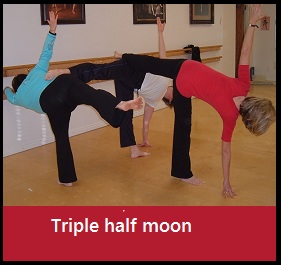Santosha is contentment with what is; awareness of what is happening and being grateful for whatever that reality might be. I like this story as an illustration of Santosha:
In a Chinese story, a man has both a son and a horse. One day, his horse runs away, and his neighbors feel sorry for him. “Oh, what bad luck for you,” they say.

But the old man replies, “Maybe so, maybe not.”
The next week, the horse returns, bringing another horse with it. “You are very lucky!” say his neighbors. The old man says only, “Maybe so, maybe not.”
The old man’s son likes this new horse very much and undertakes to train it, but one day, he is thrown from the horse and breaks his leg. The villagers tell the old man, “That is bad luck.”
The old man responds, “Maybe so, maybe not.”
Soon after this, there is war in the land, and all the young men in the village must join the emperor’s army, but because his leg is broken, the old man’s son does not have to go. “Ah, you are very lucky,” the villagers tell the old man.
He says only, “Maybe so, maybe not.”
Santosha feels like the middle way – neither overjoyed and excited nor despondent or sad. It is being fully present to what is, and then putting faith in God that everything is going as it should for my highest and best good, even if the circumstances might be unpleasant. Contentment is balance in mind, body, emotions. A very healthy place to be.



